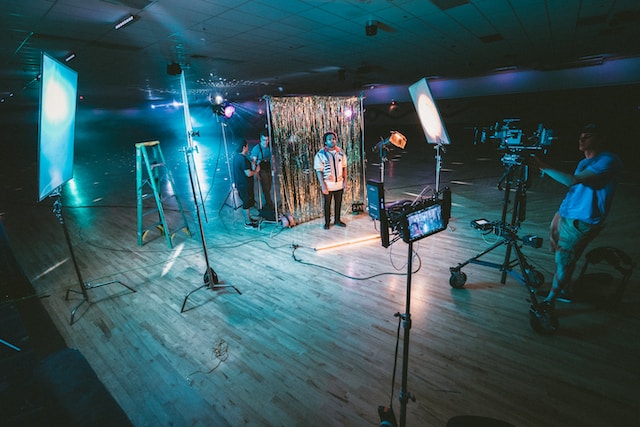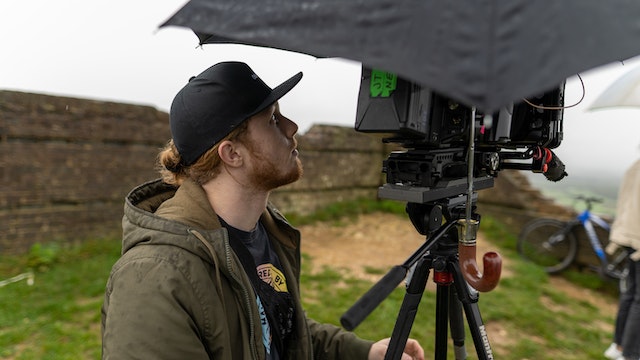
The Role of Transcription Services in Film Industry
In the fast-paced and dynamic world of the film industry, accurate and efficient communication is crucial. Transcription services play a vital role in ensuring that audio and video content is transformed into written form, enabling easy access, editing, and analysis. This section will explore the significance of transcription services in film industry, highlighting their ability to convert audio to text and provide reliable video transcription services.
Transcription services offer a seamless solution for filmmakers, production companies, and other professionals involved in the creation and distribution of films. By converting spoken words into written text, these services enable easy reference to dialogue, interviews, voiceovers, and other audio elements within a film. This not only facilitates efficient editing but also enhances accessibility for individuals with hearing impairments or language barriers.
The accuracy and attention to detail provided by professional transcriptionists ensure that every word is captured faithfully from the original source material. Whether it’s capturing intricate nuances in dialogue or accurately transcribing technical terms related to cinematography or sound design, transcription services play a crucial role in preserving the integrity of the filmmaker’s vision.
Moreover, transcription services offer time-saving benefits by eliminating manual transcribing tasks that can be labor-intensive and time-consuming for film professionals. By outsourcing this task to skilled transcriptionists, filmmakers can focus their energy on creative aspects of their work.
Understanding the role of transcription services in film industry is essential for appreciating their contribution towards effective communication and streamlined workflows. From converting audio to text to providing reliable video transcription services, these solutions empower filmmakers with accurate documentation of their content while saving valuable time during post-production processes.
Enhancing the Film Production Process with Accurate Transcriptions
In the world of film production, accurate transcriptions play a crucial role in enhancing both the pre-production and post-production processes. From script development to transcribing interviews, these transcriptions provide valuable insights and streamline the overall workflow.
During the pre-production process, transcriptions allow filmmakers to meticulously analyze and refine their scripts. By converting spoken dialogue into written text, filmmakers can easily identify areas that require improvement, ensuring a cohesive and engaging storyline.
Transcribing interviews with actors or subject matter experts provides invaluable reference material for filmmakers. These transcripts enable efficient analysis of performances or discussions, aiding in character development and ensuring accuracy in portraying real-life events or experiences.
In the post-production phase, accurate transcriptions serve as an essential tool for editors. Film transcription provide a detailed record of dialogue and sound cues, facilitating seamless synchronization of audiovisual elements. This ensures that the final product aligns with the director’s vision while maintaining continuity throughout the film.
Incorporating accurate transcriptions into the film production process enhances efficiency and precision. By providing a reliable textual representation of spoken content, these transcripts contribute to creating compelling narratives that captivate audiences worldwide.

The Value of Timecoding in Film Transcriptions and Subtitling
Timecoding plays a crucial role in film transcriptions and subtitling services, adding significant value to the overall process. By accurately synchronizing the dialogue or audio with corresponding timestamps, timecoding ensures precise alignment between spoken words and their visual representation.
In the realm of subtitling services, timecoding allows for seamless integration of subtitles into films, TV shows, and other video content. It enables viewers to read captions that appear on screen at precisely the right moment, enhancing accessibility for individuals with hearing impairments or those watching in noisy environments.
Moreover, timecoding facilitates the film editing process by providing editors with precise reference points. This allows them to make necessary adjustments and ensure smooth transitions between scenes while maintaining synchronization with subtitles or closed captioning.
Overall, timecoding serves as a vital tool in film transcriptions and subtitling services by ensuring accurate synchronization of audiovisual elements and improving accessibility for diverse audiences.
Improving Accessibility with Captioning and Subtitling Services for Films
In today’s digital age, the importance of accessibility in the entertainment industry cannot be overstated. Captioning and subtitling services for films play a crucial role in ensuring that individuals with hearing impairments or those who speak different languages can fully enjoy and comprehend movies.
Captioning services for films involve the creation of synchronized text that accurately represents the dialogue, sounds, and other audio elements in a film. This allows individuals with hearing impairments to read along and understand the content being presented on screen. Closed captions for movies not only benefit those with hearing disabilities but also provide an inclusive viewing experience for all audiences.
Similarly, subtitling services for films cater to foreign language film translations. By providing translated subtitles, viewers who do not understand the original language can still engage with and appreciate foreign films. This enhances cultural exchange and promotes diversity in cinematic experiences.
The implementation of captioning and subtitling services in films is a testament to the commitment of filmmakers and content creators towards inclusivity and accessibility. It ensures that everyone, regardless of their abilities or language proficiency, can enjoy the magic of cinema without any barriers.

The Role of Transcription Services in Research and Documentary Filmmaking
Transcription services play a vital role in both research and documentary filmmaking projects, particularly when it comes to the accurate documentation.
In the realm of research, transcription services enable researchers to transform spoken interviews into written text. This process allows for easier analysis and interpretation of data, ensuring that valuable insights are not lost or misinterpreted. By transcribing interviews, researchers can refer back to exact quotes and references, enhancing the credibility and accuracy of their findings.
Similarly, in the field of documentary filmmaking, transcription services are essential for capturing and preserving the authenticity of real-life stories. Transcribing interviews conducted with subjects provides filmmakers with a detailed written record that can be used during the editing process. It enables them to accurately represent their subjects’ words and experiences while maintaining the integrity of their storytelling.
Transcription services contribute to efficiency by saving time that would otherwise be spent manually transcribing lengthy recordings. Filmmakers and researchers can focus on analyzing content rather than tediously transcribing it themselves.
Transcription services serve as invaluable tools in both research and documentary filmmaking projects. They ensure accuracy, enhance credibility, preserve authenticity, and streamline workflows for those involved in these creative endeavors.
Leveraging Professional Transcription Services to Enhance your Film Projects’ Success.
Leveraging professional transcription services can significantly enhance the success of your film projects in the ever-evolving film industry. By utilizing a reliable video transcription service, filmmakers and production teams can streamline their workflow, save time, and ensure accuracy in their projects.
Transcription services play a crucial role in the film industry by converting audiovisual content into written form. This not only facilitates efficient editing and subtitling processes but also enables better accessibility for audiences with hearing impairments.
The benefits of using professional transcription services extend beyond convenience. They provide an extra layer of professionalism to your film production, ensuring that dialogue and important details are accurately captured. Moreover, transcriptions serve as valuable reference material for script revisions, translations, and future projects.
By partnering with a reputable transcription service provider, filmmakers can focus on their creative vision while leaving the meticulous task of transcribing to experts. This collaboration enhances productivity and allows for seamless communication between team members throughout the filmmaking process.
In summary, integrating professional transcription services into your film projects is a strategic move that not only enhances efficiency but also elevates the overall quality of your work. Embracing this invaluable tool within the film industry fosters accessibility, precision, and effective communication among all stakeholders involved in bringing cinematic visions to life.